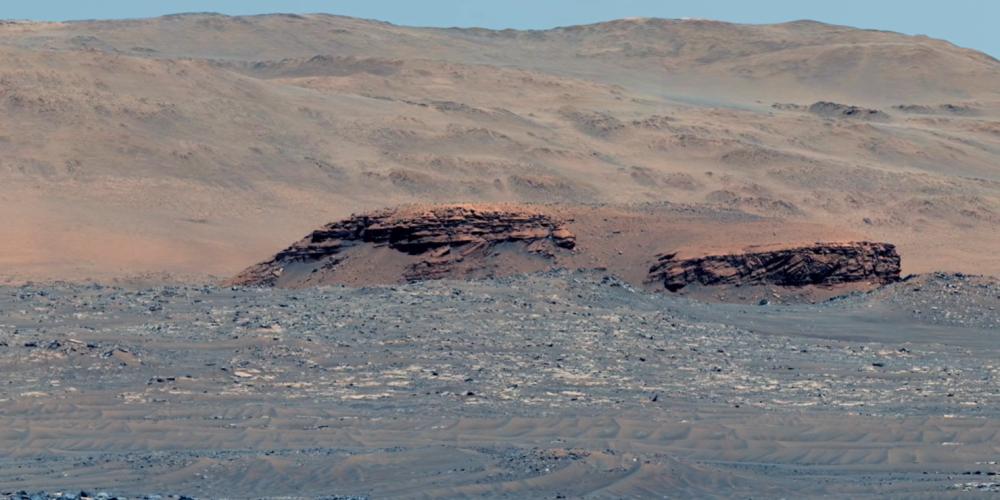On Dec. 16, at the American Geophysical Union's Fall Scientific Conference in New Orleans, NASA rover mission scientists announced a new discovery: the bedrock that the Perseverance rover has been traveling on since its landing may have been formed from hot magma, and the rocks in jezero Crater, where it is located, may have interacted with water multiple times over hundreds of millions of years, some of which also contain organic molecules.

Environment in Zeggelo Crater (Source: NASA/JPL-Caltech/ASU/MSSS)
In fact, even before Perseverance landed on Mars, the mission's scientific team was already curious about the origins of the rocks in the region. Are they deposited? Or is it the product of compressed accumulation of mineral particles brought to the area by ancient river systems? Or were they brought from the ground to the surface by a volcano?
Images from the surface radar of the Perseverance rover (Source: NASA/JPL-Caltech/University of Arizona/USGS/FFI)
The drill bit at the end of the perseverance rover's robotic arm can grind the rock surface so that other instruments can study it. PIXL is short for the X-ray Rock Chemistry Planetary Instrument, which uses X-ray fluorescence to map the elemental composition of rocks. On Nov. 12, PIXL analyzed a core sample called South Séítah that the science team had collected with a rover rig. PIXL data shows that the rock, nicknamed "Brac," is made up of a large number of unusually large peridot crystals surrounded by pyroxene crystals. This suggests that the crystals precipitated during growth by encountering slowly cooling magma, and that's how the rocks slowly formed. The rock was changed by the water several times. Such a process would allow future scientists to date the Jezero event, better deduce the exact period of water's presence on the surface of Mars, and reveal the early history of Mars.
Perseverance will relentlessly collect rock samples on Mars, which is an important basis for the search for microscopic life on ancient Mars, even if Perseverance is not capable of bringing back these precious samples. Now, of its 43 sample tubes, 6 have been filled and sealed. It will quietly wait for future probes, and possibly Earthlings, to bring these physical evidences back to Earth for further study.